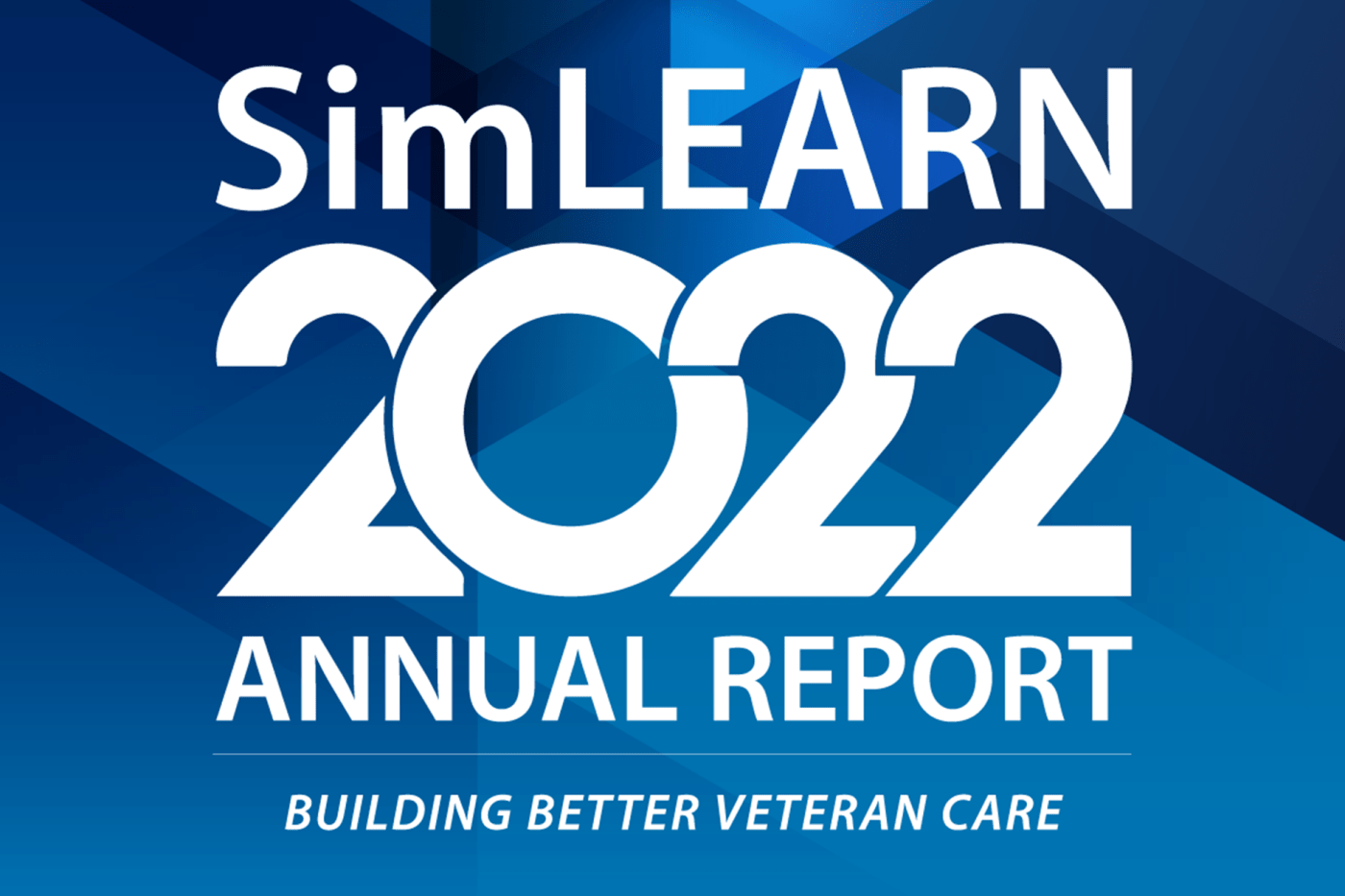In 2022, VHA’s Simulation Learning, Evaluation, Assessment and Research Network (SimLEARN) continuously demonstrated the necessity of health care simulation-based trainings, exercises and testing in order to safely and proactively ensure the most effective care for our nation’s Veterans. Many of the program’s goals, benchmarks and aspirations are outlined in the recently released 2022 Annual Report; however, what stands out most are the advancements SimLEARN has led in the health care space and the benefits its work holds for Veteran care.
Health care simulation drives safer care
Through its specialty-based portfolios, SimLEARN trains those that care for Veterans in best practices, new forms of care, emerging technology integration and optimal health care facility design. In 2022, the Learning Management portfolio, which is responsible for managing and standardizing training in the areas listed above, drastically expanded its footprint by establishing SimLEARN Innovation Centers for Education at 66 VA Medical Centers across the country.
This almost four-fold increase allows for more localized and consistent training at facilities to optimize care for Veterans wherever they may be located. This is a prime example of how SimLEARN is accelerating the rate at which simulation-based tools get into the hands of care providers. What results is that, through preparation, the safety risks to patients dramatically decrease.
Another central example of this reduction in safety risk is the Assessment Collaboration and Outreach (ACO) portfolio discovering 294 latent safety threats during hospital activations through 73 simulation scenarios. These safety measures include improving the very buildings in which Veterans receive care. ACO also used new “digital twin” technology to virtually plan and simulate hospital layouts and design, discovering 125 ways to improve worker and patient flow.
Impacting Veteran care through health care simulation training
Other SimLEARN portfolios supported advancement in health care simulation in their areas of specialization. For example, the Clinical Training and Engagement portfolio spent the year expanding its impact by delivering simulation-based trainings in disparate areas of health care, including airway management in and out of operating rooms, dental simulation, musculoskeletal examinations and virtual health.
Finally, the Resuscitation and Education Innovation portfolio continued increasing its role as a leader in cardiac arrest resuscitation, training more than 250,000 VHA staff members in its resuscitation quality improvement (RQI) techniques. This led the American Heart Association to recognize RQI as the gold standard of training by the American Heart Association. More importantly, the training directly led to five Veteran lives being saved by VA staff members.
The future of health care simulation at SimLEARN
Throughout the past year, SimLEARN has seen incredible growth and transformations that are paving the way for the future of Veteran health care. One of the biggest steps towards this was the launch and establishment of the Simulation Validation, Evaluation and Testing portfolio, which test drives clinical software applications and medical devices in a fail-safe simulated clinical environment ensuring that new solutions work for both providers and Veteran patients themselves. At this moment, SimVET is working to discover the true impact of advanced health care tools like VR, holograms and interconnected care through 5G technology.
As SimLEARN heads into 2023—strengthened by the Support Operations portfolio, which oversees all logistics and coordination—it looks forward to expanding all these efforts so that the impact of standardized, innovative and proven training and technology can build the best health care system possible.
This is just a glimpse of SimLEARN’s 2022 accomplishments, and to learn more about SimLEARN’s ongoing efforts to advance Veteran health care, check out the SimLEARN 2022 Annual Report.
Topics in this story
More Stories
The 2024 National Veteran Suicide Prevention Annual Report provides the foundation for VA’s suicide prevention programs and initiatives.
Theranostics is a specialized field of nuclear medicine that uses a two-pronged approach to diagnose and treat cancer.
Air Force Veteran Shireta Jones overcomes obstacles with support from VA and adaptive devices to continue her passion for pickleball.






